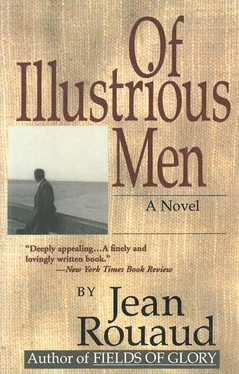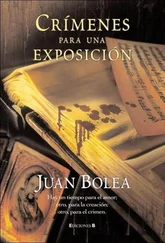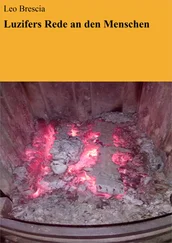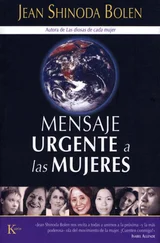Jean Rouaud - Of Illustrious Men
Здесь есть возможность читать онлайн «Jean Rouaud - Of Illustrious Men» весь текст электронной книги совершенно бесплатно (целиком полную версию без сокращений). В некоторых случаях можно слушать аудио, скачать через торрент в формате fb2 и присутствует краткое содержание. Год выпуска: 2011, Издательство: Arcade Publishing, Жанр: Современная проза, на английском языке. Описание произведения, (предисловие) а так же отзывы посетителей доступны на портале библиотеки ЛибКат.
- Название:Of Illustrious Men
- Автор:
- Издательство:Arcade Publishing
- Жанр:
- Год:2011
- ISBN:нет данных
- Рейтинг книги:4 / 5. Голосов: 1
-
Избранное:Добавить в избранное
- Отзывы:
-
Ваша оценка:
- 80
- 1
- 2
- 3
- 4
- 5
Of Illustrious Men: краткое содержание, описание и аннотация
Предлагаем к чтению аннотацию, описание, краткое содержание или предисловие (зависит от того, что написал сам автор книги «Of Illustrious Men»). Если вы не нашли необходимую информацию о книге — напишите в комментариях, мы постараемся отыскать её.
Of Illustrious Men — читать онлайн бесплатно полную книгу (весь текст) целиком
Ниже представлен текст книги, разбитый по страницам. Система сохранения места последней прочитанной страницы, позволяет с удобством читать онлайн бесплатно книгу «Of Illustrious Men», без необходимости каждый раз заново искать на чём Вы остановились. Поставьте закладку, и сможете в любой момент перейти на страницу, на которой закончили чтение.
Интервал:
Закладка:
We were never to learn any more. After that, we all tried to work it out for ourselves by strolling up and down the pathways, the children providing the beginnings of a solution by climbing onto everything they found climbable. Our very own Creator-Designer insisted on the size of the stones, the difficulty of moving, sometimes over many kilometers, such considerable masses. All the more so in that the same thing applied to menhirs as to icebergs — you also had to consider the buried part that ensured the stability of the block. If he insisted so much on what we couldn’t see, it was of course because invisible things open on infinity, but it was also because we were finding it difficult to work up much enthusiasm. Prepared by our great man, we were expecting to see a field full of Eiffel Towers, and skyscrapers of carved stone, instead of which no more than a handful of them managed to rise to twelve feet. And even then, it was better to be small yourself.
There is no improvisation in Carnac. It isn’t like towns that have gradually grown rich, like Venice or Amsterdam, where merchants and bankers, as the years went by and as the fancy took them, were constantly trying to outdo each other with more beautiful, bigger, and flashier buildings than those of their rivals. But here in Carnac, a single project had been conceived and carried to term. And in a very short time: if it had been spread over some decades the initial plan, like that of a cathedral, would have been modified a hundred times. The recipe is simple: strong arms, an efficient foreman, an inspired architect, and a tyrannical prince. That’s enough. The stones, erected within a couple of steps of the coast as if to form a rampart against the violence of the waves and the furious sea wind, are regularly spaced, orientated from east to west, and aligned in eleven or thirteen rows in decreasing order. If they were hollow, you could imagine fitting them one into the other like Russian dolls.
With time, many of them have disappeared: sold, reused, taking refuge in the wall of a fisherman’s house or enclosing a pasture — the smallest ones at first, the easiest to move, the ones at the end of the row. If the order had been respected, the final stone in these alignments ought to have been the size of a grain of sand, a progressive dissolution into Mother Earth, or, starting from the east, a little grain of stone, a mineral seedbed, ending in the forest of the giants in the west. It was where this theoretical grain of sand would have been that we discovered, in the short grass near a tuft of sea pinks, the sort that grow along the Atlantic Coast, the corpse of a bird: its little body was emaciated, its neck bare as if death had removed its scarf; it had a bluish speck on its eye, a half-open beak, and its little vermicelli legs were folded like the frame of a dainty parasol. A few feathers still sticking to the fragile skeleton of its wing were flapping gently in the breeze.
Father knelt down by the tiny corpse, the better to observe it, no doubt, but in an attitude that was so reverent, so full of commiseration, that we imitated him and formed a circle around it, Mother being the only one to remain on her feet. We were on the threshold of a miracle of childish simplicity, convinced that Father was going to breathe life into the miniature breast, that its flesh would heal, its wings would beat again and then carry the rejuvenated bird up into the sky. As when the tombs of the blessed are opened, from these few grams of decomposed flesh there arose the sweet fragrance of the sea pinks. This perfumed message brought hope and consolation.
When he raised his head, Father’s gaze fell upon the line of stones gently climbing toward the setting sun. Resting his arms on his knees, like a soccer player in the front row of a group photo, in his mind’s eye he seemed to be following the flight of the bird above the alignments. The golden light soon forced him to lower his eyes. He shook his head pensively, and, as if he had been afraid of abandoning us, as a way of getting us to share his impressions, he said, “Even so, it does look very much like a cemetery.”
Whereupon he stood up again, and kept our attention with a wink. He took the tape measure out of his pocket, measured the distance between the last two menhirs in the line, and at the same distance from the one at the end of the row made a mark on the ground with the toe of his shoe. He bent over again, and with his penknife, a stainless steel knife that he took everywhere and which had two blades plus a spike and a corkscrew, dug a hole as deep as a fist at the spot marked, cut a cardboard rectangle out of his cigarette pack, slid it under the bird’s body, and deposited the whole in the little grave with all the caution of a porcelain salesman. Now that his cigarettes were loose in his pocket, he removed the silver paper they were wrapped in and used it as a luxurious shroud to cover the little victim.
After a rapid survey of the surroundings, he spotted a stone at the bottom of a clump of broom at the side of the field, carried it a few yards, and planted it vertically above the improvised tomb, thus completing the work of the long-gone gravediggers.
While we were silently attending the funeral ceremony, we didn’t need to confer with one another to know that we were all thinking the same thing — the mound at the bottom of our garden under which the body of our last dog lay. A magnificent German shepherd whose love was exclusive, who used to lie on the mat inside the shop door, and whenever he was on his own put all the clients to flight: all he had to do was get to his feet, his head hunched up between his shoulders, his shoulder blades sticking out. If the person persisted, a low-frequency growl completed the message. There was, however, an Open Sesame. If he was called by his name he stopped his threats and lay down again heavily. Habitues cautiously pushed the door open a crack, called “Varus” in an uncertain voice, and he would even go up to some of them and beg to be caressed. There was great pride among those whom the big wolflike dog admitted into his inner circle. There was great relief when they buried their fingers in the beautiful animal’s thick fur, patted his flanks, or massaged his throat, not without drawing on whatever reserves of courage they could find within themselves.
There were great difficulties for the shop, which already found it hard enough to get new customers, even though at the time the great majority of them were local residents — including the gypsies, also known as Bohemians, who had settled on some wasteland on the outskirts of the village. The women in their long dresses in definitely unfashionable colors yelled as they pushed the door open: “Tie that dog up!” and while they were cursing and swearing a few knick-knacks that happened to be handy would get tucked under their thick skirts — simply for the beauty of the gesture, because we would often find them in a ditch, where they’d been tossed with a magnificent contempt that we found insulting to our beautiful crockery.
With our Cerberus at the door, the household was well guarded. As Varus grew older, his love for all of us who belonged to him became more intense, but that only made him more unreasonable. Since our old Marie didn’t live with us, she remained on the periphery of his affection. Her little house in the garden gave her the special status of a permanent guest. She didn’t have to make herself known to the big dog, she could come and go freely without having to use his name as a password, but owing to her awkward ways with both animals and children, she didn’t quite seem to be one of us. One afternoon in late summer while she was planning to take us for a picnic in the country, she intimated to the big dog that he was to stay at home, but he couldn’t allow the children for whom he felt answerable to be thus removed from his care. So, as we were getting ready to leave, he jumped up at the old schoolmistress’s arm.
Читать дальшеИнтервал:
Закладка:
Похожие книги на «Of Illustrious Men»
Представляем Вашему вниманию похожие книги на «Of Illustrious Men» списком для выбора. Мы отобрали схожую по названию и смыслу литературу в надежде предоставить читателям больше вариантов отыскать новые, интересные, ещё непрочитанные произведения.
Обсуждение, отзывы о книге «Of Illustrious Men» и просто собственные мнения читателей. Оставьте ваши комментарии, напишите, что Вы думаете о произведении, его смысле или главных героях. Укажите что конкретно понравилось, а что нет, и почему Вы так считаете.












